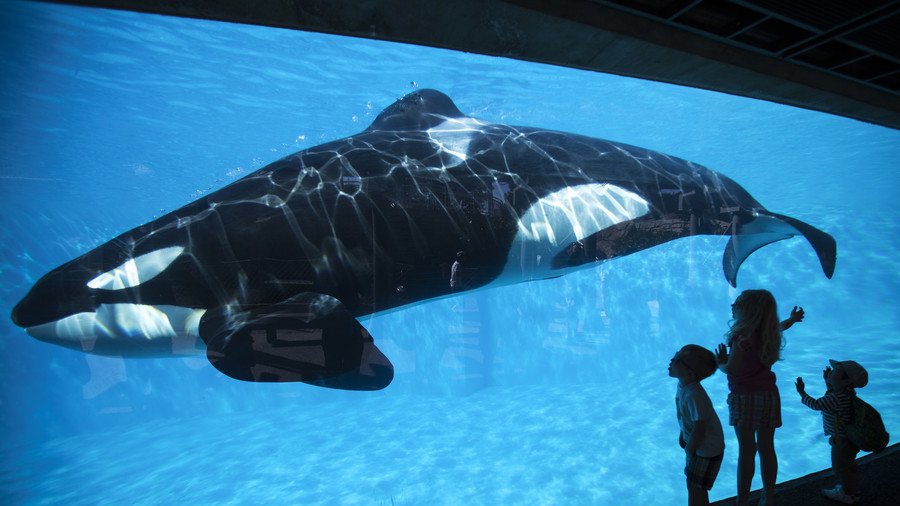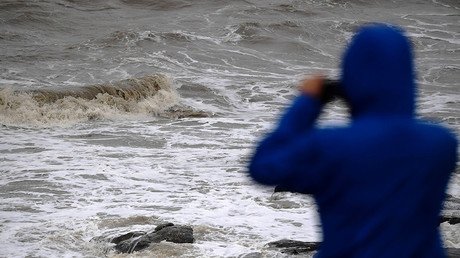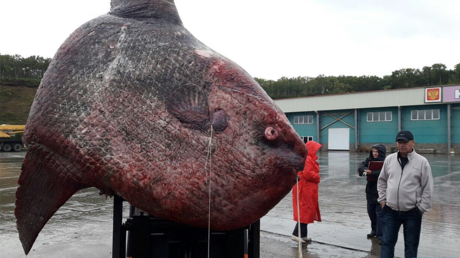Killer whale ‘repeats human speech’ - study (AUDIO, POLL)

Killer whales have for the first time been recorded apparently imitating human speech. Audio released in a new study captured an orca mimicking words such as “hello” and “bye bye.”
A new study, published Wednesday in the journal ‘Proceedings of the Royal Society B’ and led by the Complutense University of Madrid, found orcas have the ability to learn and mimic human language.
Not just that, researchers also found the creatures can copy unfamiliar sounds produced by other orcas (like blowing a raspberry, for instance).
“History will record that in the second decade of the third millennium, a killer whale uttered the word “hello” to a human,” wrote Luke Rendell, Lecturer in Biology at the University of St Andrews, which also assisted in the study.
While other animals like dolphins, bats, seals, elephants and parrots have already been found to mimic human speech, Rendell says a whale repeating “hello” and other phrases meaningless to the mammals proves “they are capable of one of the core building blocks of language development in humans: vocal learning.”
“Although the ability to copy sounds of individuals of the same species is widespread in birds, it is remarkably rare in mammals and, among primates, is practically exclusive to humans,” read the press release announcing the study.
The team tested a 14-year-old female orca called Wilkie with multiple sounds in different scenarios, including using loudspeakers. Each time the whale’s response was measured with forensic acoustic analysis and Wilkie was reportedly often found to repeat the sound back on the first try.
The team says this display of imitation helps explain how pods of wild killer whales create their own dialect, and how captive whales change their calls to fit in with their new group when moved to different locations.
“The evidence that killer whales can show vocal learning provides us with a missing piece of understanding about their lives in the wild,” Rendell wrote.














